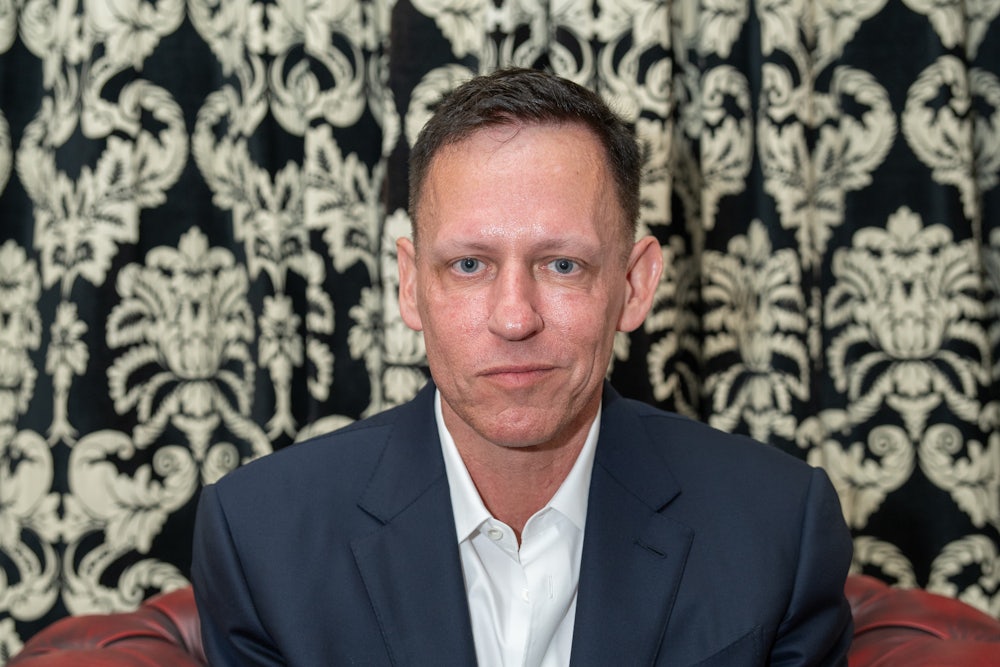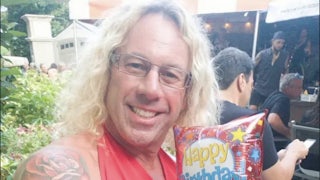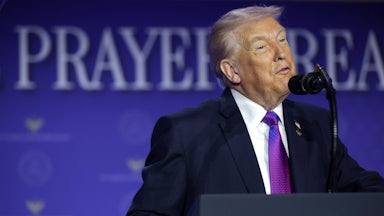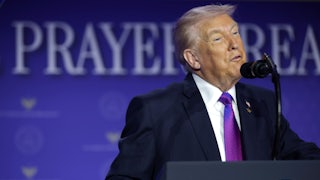Peter Thiel, the billionaire tech entrepreneur, venture capitalist, and prominent supporter of President-elect Donald Trump, is also something of a political theorist. His latest work is an essay in the Financial Times titled “A time for truth and reconciliation,” a nod to the South African Truth and Reconciliation Commission.
You might wonder which injustices of contemporary America are, for Thiel, analogous to apartheid. The disproportionate imprisonment of Black Americans? The impoverishment of Native Americans? Crippling medical debt? Rising homelessness?
No. In fact, Thiel isn’t quite sure what injustices require redress—but he’s sure we’re about to find out. “Trump’s return to the White House augurs the apokálypsis of the ancien regime’s secrets,” he writes. The hidden truths that he would have us seek are answers to questions such as: Did financier and child sex offender Jeffrey Epstein really die by suicide? What really happened in the assassination of John F. Kennedy? Did Anthony Fauci “suspect that Covid spawned from US taxpayer-funded research, or an adjacent Chinese military program?”
As Thiel sees it, the second Trump administration promises “the most peaceful means of resolving the old guard’s war on the internet, a war the internet won.” Civic institutions—“the media organizations, bureaucracies, universities and government-funded NGOs”—have lost the power to police the truth, and now here comes Trump, who, with “piecemeal declassifications,” can answer all of our questions about who really killed Epstein and JFK.
Critics of Thiel’s column call it “beyond nuts,” like an “edited version of one of those lunatic emails journalists get sometimes with like 8 different fonts in 9 different colors,” a piece “that perfectly replicates the experience of being cornered by a sweaty cokehead at an Austin, Texas house party.”
Those are funny lines, but I think it’s a mistake to dismiss Thiel so easily. Beneath his conspiracism lies a substantive political theory: the wrongheaded belief that absolute freedom of information through a wholly deregulated internet can move us beyond the impasse of dead-end liberal democracy.
Thiel’s column, in which he bemoans that “identity politics endlessly relitigates ancient history,” picks up a number of ideas expressed in his 2007 essay “The Straussian Moment,” which argues that rational liberal modernity is stultifying and doomed. “There can be no real accommodation with the Enlightenment,” he writes, “since many of its easy bromides have become deadly falsehoods in our time.”
In particular, he refers to the Enlightenment tendency to ignore questions of human nature, the answers to which reveal our endless capacity for violence. Thiel views “America’s constitutional machinery” as a barrier to “a direct path forward” from the weakened and confused state of Enlightenment liberalism in the twenty-first century. The violence that concerns Thiel is what his intellectual mentor, the late Stanford political theorist René Girard, called mimetic violence, in which we imitatively desire what others desire, generating mimetic rivalries that, as Thiel puts it, can “escalate into unlimited violence.”
In more concrete terms, Thiel finds the ordinary agonism of American politics both dangerous and duplicitous. In a 2019 interview, he said, “I would like to live in a world that’s less political, where there’s less politics, but I’d also like us to be honest about how terrible politics is … it’s not a nice thing.” Like his recent essay, “The Straussian Moment” also imagined a great unveiling of truth: “One must never forget that one day all will be revealed, that all injustices will be exposed, and all those who perpetuated them will be held to account.”
The question we should ask this very wealthy, very influential person who would vest more credibility in people on the internet just asking questions about Covid-19 than he would in the Centers for Disease Control and Prevention or the Johns Hopkins Department of Epidemiology is: What then? What would a combination of “less politics,” an even more unfettered internet, and a weakening of media organizations, universities, and government agencies look like?
Universities, media organizations, bureaucracies, and nongovernmental organizations all serve as information guardrails. Those civic institutions, it’s fair to say, have lately failed to sustain popular trust, but it’s hard to imagine how a Trump government commission on, say, whether Covid-19 was an “inside job” would help to restore that trust.
If post-9/11 was for Thiel a “Straussian moment,” now is a postmodern moment, the time to strike a definitive blow against Enlightenment liberalism and the institutions that reproduce its norms, including American democracy itself. But Thiel’s vision of a “liberation” from the so-called “Distributed Idea Suppression Complex” would mean not a more democratized and direct access to truth but, more likely, a hyper-mediated idea of “truth” that takes on the character of conspiracy theory.
Thiel has lamented that “in the last 40 or 50 years there’s been a shift from exteriority … doing things in the real world … to the interior world.” I think we’ve already seen enough, from the “intellectual dark web” careening toward conspiracism to the supercharging of misinformation on Elon Musk’s X and Mark Zuckerberg’s Facebook, to understand that even more of this would not mean “less politics” or “more truth,” but rather a dizzying information landscape in which any one packet of information is as good as the next and everything is politics.
Even as a professor—a part of the pernicious ancien régime, as Thiel likely would have it—I’m sympathetic to popular discontent with civic institutions, universities included. The credibility collapse of knowledge-preserving and knowledge-generating institutions is partly of our own making. I have my own frustrations with what often feels like a lack of curiosity-driven academic research.
But I also think the alternative that Thiel proposes would only backfire on the principles Thiel himself has stated, particularly amid our obsession over AI. “The mania we have around artificial intelligence,” Thiel said in 2019, “is because it stands for the proposition that humans aren’t supposed to think. We want machines to do the thinking, but it’s because we’re in a world where individuals are not supposed to have intellectual agency of any sort anymore.… We can maybe believe in the wisdom of crowds, we can believe in big data, we can believe in some sort of mechanistic process, but we don’t believe in the mind.”
I can see how Thiel can get from his counter-Enlightenment position in “The Straussian Moment” to this reflection on AI to his “truth and reconciliation” essay. Liberating the internet theoretically could give us something like the Kantian counter-Enlightenment of “man’s emergence from his self-imposed nonage,” a call to trust oneself and one’s intellect over corrupt institutions—the “freedom to make public use of one’s reason in all matters.” But I’m skeptical it would play out this way in practice. Rather than a greater belief in the mind and awareness of truth, we’d get faith in an inescapable deluge of meaningless information.






